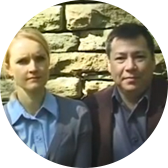texas FAQ Categories
Texas Lemon Law Basics
What Is the Lemon Law in Texas?
Who Qualifies for Compensation Under the Texas Lemon Law?
How Long Do I Have to File a Claim under the Texas Lemon Laws?
How Do I File a Lemon Law Claim in Texas?
What is the Texas Lemon Law For Used Cars?
How Long Do I Have to Return a Car under the Texas Lemon Law?
How Does My Lawyer Get Paid?
Who Administers the Lemon Law in Texas?
What If My Case Isn’t Covered by the Texas Lemon Law, Do I Have Any Other Recourse?
What Is the Lemon Law in Texas?
The Texas Lemon Law is a state law designed to protect consumers who’ve purchased or leased a new vehicle. It does so by holding manufacturers responsible for defective vehicles, requiring them to refund or replace any that they fail to repair after a reasonable number of attempts.
Texans can also turn to the Magnuson-Moss Warranty Act if they purchase or lease a lemon. This federal law provides broader protections, making it possible to pursue claims even after the filing window for the state law has expired.
Who Qualifies for Compensation Under the Texas Lemon Law?
To qualify for compensation under the Texas Lemon Law, a consumer must be a resident of Texas and purchase or lease their vehicle within the state. Additionally, the law only covers those who purchase or lease a new vehicle at retail. Although there are some exceptions to this rule.
Like all Lemon Laws, the Texas version requires consumers to provide manufacturers with a reasonable number of repair attempts before pursuing a claim. In Texas, that translates to four repair attempts for any single defect. However, if the defect poses a significant safety risk, two attempts will suffice. In both cases, at least half of the repair attempts must take place within the first 12 months and 12,000 miles of ownership.
Vehicles may also qualify for compensation if they are out of service for repairs for a total of 30 days within 24 months and 24,000 miles of the original purchase date. Plus, the federal Lemon Law only requires a single repair attempt in some cases. And as long as the vehicle is under warranty when you report its defect(s), it qualifies for protection under federal law.
How Long Do I Have to File a Claim under the Texas Lemon Laws?
From the original purchase date, consumers have a maximum of 30 months to file a claim under the Texas Lemon Law. However, the reporting period is shorter for vehicles that get a lot of use. Officially, you have six months to file a claim after either A) the warranty expires B) the vehicle has been driven 24,000 miles, or C) 24 months have passed since the original purchase date.
The six-month filing deadline begins on the earliest of these three dates. Thus, it’s important to take action as soon as you think you may have a lemon. You can get started with a free case review today.
That said, if you miss the deadline to file a Texas Lemon Law claim, you still have options. The Magnuson-Moss Warranty Act allows you to file a claim for up to four years after your warranty was breached. For vehicles, that often means four years from the date of the first failed repair attempt. Still, the sooner you act, the greater your chances of success.
How Do I File a Lemon Law Claim in Texas?
Filing a Lemon Law claim in Texas is fairly straightforward when you have an experienced attorney in your corner. Our team at Krohn & Moss, Ltd. Consumer Law Center® can assist you with every step of the process, from gathering evidence to providing written notice of the defect to the manufacturer and ultimately taking your case to trial. Although, more than 99% of our cases settle without going to trial.
For those who prefer to represent themselves, let’s walk through the process of filing a claim from beginning to end. Before you can file a claim, you need to provide the manufacturer with written notice of the defect via certified mail, which we can handle on your behalf.
Next, you’ll need to provide the manufacturer with one final chance to repair the vehicle. With this in mind, we recommend sending written notice after a single failed repair attempt for safety issues or after three such attempts for less serious defects.
When this final repair attempt fails to solve the problem, you must then present your case to the Texas DMV. Their staff case advisor will review your claim and attempt to resolve the matter via mediation between you and the manufacturer. If mediation fails to solve the problem, you will be assigned a hearing date for your case.
During the hearing, both you and the manufacturer will present your cases to the hearing examiner. After doing so, the examiner has 60 days to issue their ruling. If either party is dissatisfied with the outcome, they may file a motion for a rehearing with the Texas DMV. And, if the rehearing proves similarly dissatisfying, you may appeal the decision with a state, district, or appellate court.
As you can see, the law does ask Texans to jump through a few hoops before they can collect the compensation they deserve. But with an experienced Texas Lemon Law attorney in your corner, the process is far less complicated than the preceding paragraphs make it out to be.
In most cases, all we need from you is your vehicle’s repair history and any sales or warranty documentation you have. And, if you don’t have access to such records, we can usually obtain them on your behalf. So, rather than fighting a giant corporation’s legal team by yourself, reach out to us today for a free case review so we can help you collect the compensation you’re owed.
What is the Texas Lemon Law For Used Cars?
The Texas Lemon Law typically only applies to new vehicles. However, if you purchased a used vehicle that was still under warranty, it may still be covered. As long as the vehicle meets the definition of a lemon, it’s protected under the Texas Lemon Law, whether or not you’re the original owner.
Such cases hinge on the date of the repair attempts. Texas Lemon Law requires at least half of the repair attempts needed to qualify as a lemon take place within the first 12 months or 12,000 miles of the date the original owner takes possession of the vehicle. And the remaining attempts must take place within the following 12 months or 12,000 miles.
If you, the original owner, or a combination of the two provide the manufacturer with a reasonable number of repair attempts within those time frames, the vehicle is eligible for compensation under the Texas Lemon Law. Plus, other laws offer similar protection. If your used car is a lemon, call 1-866-525-8345 so we can provide a free case review and advise you on the best course of action.
How Long Do I Have to Return a Car under the Texas Lemon Law?
Although the Texas Lemon Law does provide consumers with an opportunity to exchange their lemon for a refund or a replacement vehicle, it does not allow them to simply return their vehicle as if it were a bad piece of fruit. All vehicle sales in Texas are final. Returns must be awarded by the Texas Department of Transportation or agreed to as part of a settlement.
How Does My Lawyer Get Paid?
At Krohn & Moss, Ltd., we only get paid if you do. Plus, if we win your case as a breach of warranty claim under the Magnuson-Moss Warranty Act, the manufacturer will be required to pay your attorneys’ fees! In such cases, our clients receive exceptional representation and the pleasure of billing the car company for our help.
However, some clients stand to gain a greater recovery if we argue their case under the Texas Lemon Law as opposed to the federal one. If you’re dissatisfied with the ruling from the hearing examiner for your Texas Lemon Law claim, you may file an appeal in a district or appellate court. And those courts have the power to award you attorneys’ fees in addition to the compensation for your lemon itself.
In any case, you’ll never have to write a check when you hire Krohn & Moss, Ltd. Consumer Law Center® for your Lemon Law case. We only charge for our services if you prevail. In other words, we will only get paid if you do.
Who Administers the Lemon Law in Texas?
The Texas Department of Transportation’s Motor Vehicle Board and Motor Vehicle Division administer Lemon Law cases in the state. Because of this, the process of filing a Lemon Law claim in Texas is slightly different than doing so in other states.
In Texas, you begin the process by filing your complaint with the DMV. A case advisor from the DMV will then attempt to mediate a resolution between you and the manufacturer. Outside of Texas, this process isn’t typically run by the State. Instead, manufacturers often establish informal dispute resolution procedures, which must conform to specific regulations and be administered by independent third parties.
What If My Case Isn’t Covered by the Texas Lemon Law, Do I Have Any Other Recourse?
Yes, the federal Magnuson-Moss Warranty Act allows you to hold manufacturers responsible for any defective products that sell for $10 or more. Like the Texas Lemon Law, the federal Act requires you to provide the manufacturer with a reasonable number of attempts to repair the product before you can make a claim. But in some cases, a single repair attempt may suffice.
So, as soon as you suspect you may have a lemon, reach out to us for a free case review. If you have a legitimate claim, we’ll be happy to represent you. And remember we don’t get paid unless you do. Plus, if we win your case under the Magnuson-Moss Warranty Act, the manufacturer will have to pay your attorneys’ fees in addition to your recovery!












